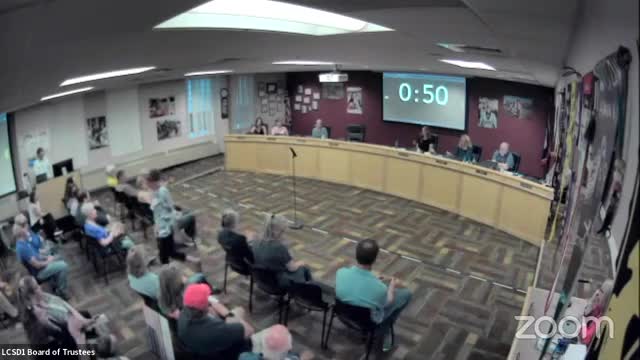School Board Faces Backlash Over Controversial Book Ban
August 20, 2024 | Laramie County School District #1, School Districts, Wyoming
This article was created by AI summarizing key points discussed. AI makes mistakes, so for full details and context, please refer to the video of the full meeting. Please report any errors so we can fix them. Report an error »

In a recent school board meeting, significant discussions emerged surrounding book bans and classroom policies, reflecting deep community concerns about educational access and student distractions.
Rachel Martinez, a local resident and grandmother, voiced her apprehension regarding a newly passed policy that she believes restricts access to books based on ideological objections. Citing data from the American Library Association and a recent analysis by Pen America, Martinez highlighted that many of the books being challenged focus on underrepresented communities, particularly those featuring LGBTQ themes. She argued that this trend represents a broader societal issue, marginalizing voices that do not conform to mainstream norms. Martinez emphasized that the decision made by the board could lead to a slippery slope of censorship, urging the community to recognize the implications of such policies on educational freedom.
In a separate but related discussion, Mason Magonya raised concerns about the presence of cell phones in classrooms, suggesting that they serve as distractions and vehicles for inappropriate material. He called for a reevaluation of the district's existing no cell phone policy, which board members confirmed is in place but may not be consistently enforced.
The meeting concluded with a motion to enter executive session to discuss sensitive matters, including potential student suspensions and legal advice, indicating ongoing challenges the board faces in managing both educational policies and student welfare. The discussions reflect a community grappling with balancing parental rights, educational integrity, and the need for inclusive representation in school curricula.
Rachel Martinez, a local resident and grandmother, voiced her apprehension regarding a newly passed policy that she believes restricts access to books based on ideological objections. Citing data from the American Library Association and a recent analysis by Pen America, Martinez highlighted that many of the books being challenged focus on underrepresented communities, particularly those featuring LGBTQ themes. She argued that this trend represents a broader societal issue, marginalizing voices that do not conform to mainstream norms. Martinez emphasized that the decision made by the board could lead to a slippery slope of censorship, urging the community to recognize the implications of such policies on educational freedom.
In a separate but related discussion, Mason Magonya raised concerns about the presence of cell phones in classrooms, suggesting that they serve as distractions and vehicles for inappropriate material. He called for a reevaluation of the district's existing no cell phone policy, which board members confirmed is in place but may not be consistently enforced.
The meeting concluded with a motion to enter executive session to discuss sensitive matters, including potential student suspensions and legal advice, indicating ongoing challenges the board faces in managing both educational policies and student welfare. The discussions reflect a community grappling with balancing parental rights, educational integrity, and the need for inclusive representation in school curricula.
View full meeting
This article is based on a recent meeting—watch the full video and explore the complete transcript for deeper insights into the discussion.
View full meeting